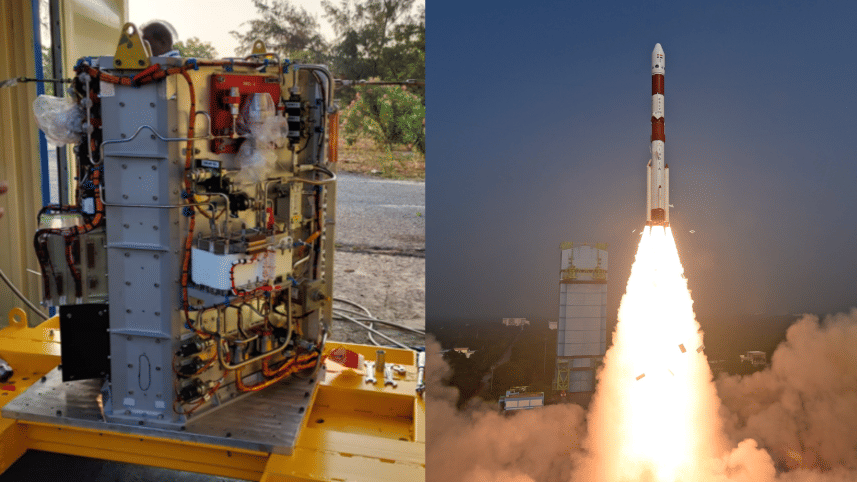India's national space agency tests futuristic fuel cell power system

A futuristic fuel cell-based power system was successfully tested by India's national space agency. As per ISRO (Indian Space Research Organisation), this new power system could help build a proposed space station while holding prospects of wider human applications.
The '100W class Polymer Electrolyte Membrane Fuel Cell based Power System (FCPS)' was tested in space on the PSLV Orbital Experimental Module or POEM, launched onboard PSLV-C58 on January 1. Fuel cell is an ideal power source for the Space Station as it provides both power and pure water, ISRO recently said in a post on X, formerly Twitter.
"Powering missions with efficiency and emitting only water, these fuel cells are the future for power production in space habitats," it said. "The objective of the experiment was to assess Polymer Electrolyte Membrane Fuel cell operation in space and to collect data to facilitate the design of systems for future missions. During the short duration test onboard POEM, 180W power was generated from hydrogen and oxygen gases stored onboard in high-pressure vessels," it added.
It also said the test provided a wealth of data on performance of various static and dynamic systems that formed part of the power system and the physics at play. "Hydrogen fuel cells produce electricity directly from hydrogen and oxygen gases, along with pure water and heat. It is an electric generator which works on electrochemical principles, as in batteries, as against the combustion reactions employed in conventional generators," the space agency said.
"These features make them ideal candidates for space missions involving humans where electric power, water and heat are essential since a single system can meet multiple requirements in the mission. Fuel cells also possess significant societal application potential," ISRO said.




 For all latest news, follow The Daily Star's Google News channel.
For all latest news, follow The Daily Star's Google News channel.
Comments